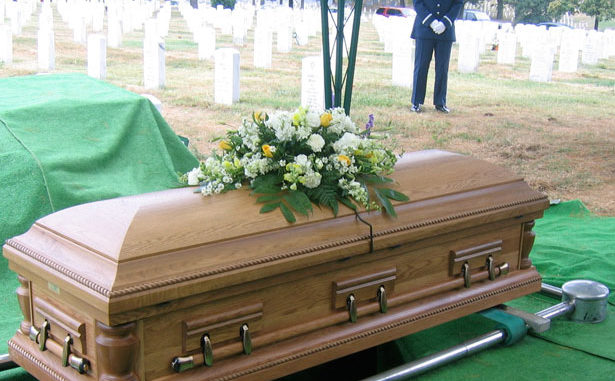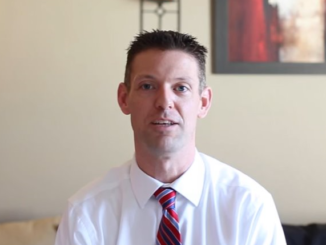
In a letter penned in 1789, the great Benjamin Franklin wrote that, “… in this world nothing can be said to be certain, except death and taxes.” The phraseology didn’t originate with Franklin, but it is most often attributed to him. And now, 230 years later, I think it’s safe to say the statement still rings true. The sad thing is that even our funerals have a touch of government to them. It’s true. I’ll explain.
Way back in 1905 the North Dakota State Legislature established the State Board of Embalmers for the purpose of regulating the licensure and practice of embalming. Embalming, of course, is a process used to treat bodies with chemicals as a means of preserving them against decomposition in preparation for funerals or medical research.
In true government form, by 1963 the Legislature further empowered the board by granting them authority to license and regulate funeral establishments throughout North Dakota. Then in 1989 the Legislature changed the name of the board to the State Board of Funeral Service and again expanded their authority to include crematoriums. You can verify this history on the board’s website.
Apparently the process of honoring our loved ones in the days following their deaths wouldn’t be the same without the hand of the State being involved. At least that’s what this statement on their website would have us to believe:
“It is the responsibility of the board to uphold high ethical and professional standards in the practice of funeral service and in the conduct of business of funeral establishments and crematoriums in the state.”
Like those who preceded them, current Representatives Jon Nelson (R – District 14) and Mike Nathe (R – District 30) think it’s time for another change. This time in the form of House Bill 1078, which proposes stricter requirements for those seeking to intern as embalmers. As it stands now, applicants only need to be:
- 18 years of age.
- Of good moral character.
- And completed an accredited four-year high school course of study and one year of accredited college or university studies.
If HB 1078 becomes law, #1 and #2 would remain the same, but the requirements in #3 would change. Prospective applicants would have to meet the following requirements instead:
- Complete one year of accredited college or university studies and
- Has been accepted to attend or is enrolled in an accredited college of mortuary science, or has graduated from an accredited college of mortuary science.
- An intern embalmer may not practice for more than six months before attending an accredited college of mortuary science.
As you can see, this is a fairly significant change— at least for the intern who would now be required to have additional schooling at an accredited college of mortuary science.
I don’t know all the thinking behind drafting this bill. But I do know that Rep. Nathe is the Funeral Director/Owner of Bismarck Funeral Home and Crematory. Having said that, it’s not uncommon for legislators to sponsor bills that relate to their professions. Yet, in circumstances like this, the bill actually makes obtaining a certificate of registration more difficult for Nathe’s potential competitors. That fact alone makes the bill worthy of questioning.
I’m willing to admit that of all the bills that will be heard at the State Capitol during the 2019 Legislative Session this one probably isn’t at the top of the list to keep an eye on. Most people are interested in other things. And understandably so. Yet, the State Board of Funeral Service and HB 1078 are illustrations of a much bigger problem we have in this state— that of boards and legislation that need not exist at all.
The only legislation that should pass Governor Burgum’s desk in relation to these things is one that eliminates the regulatory structure in its entirety. Does any thinking person honestly believe that the professions associated with this board would crumble without the influence of the State? The market is a powerful thing and people don’t always need the training of an “accredited college” to gain the skills necessary to perform a job.
If we ever want to truly shrink the size and scope of government, then we must begin eliminating agencies, boards, and legislation that shouldn’t exist in the first place. And while we’re at it, we should probably discourage lawmakers from using their elected positions as a means of making things more difficult for competitors in their professions.
Sources:
- https://www.nd.gov/funeral/
- https://www.legis.nd.gov/assembly/66-2019/documents/19-8034-01000.pdf
- https://www.bismarckfuneralhome.com/staff/mike-nathe/
- https://theminutemanblog.com/2017/08/07/save-the-taxpayer-start-eliminating-state-agencies/





